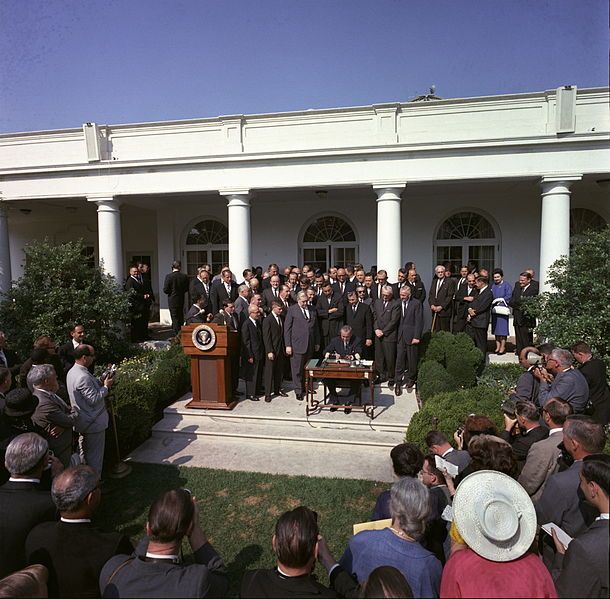Viet Nam interfered with Johnson's plans, distracted him and the nation and brought the real progress he led to a standstill. Today the battle has shifted to the great cities of the United States. The following essay describes the new terrain of whatever war might be underway against growing poverty in our nation.]
Waging the 21st-Century War on Poverty
 Lyndon Johnson signing the Economic Opportunity Act of 1964.
Lyndon Johnson signing the Economic Opportunity Act of 1964.[Now over] Fifty years ago today, during his State of the Union address, President Lyndon B. Johnson declared “unconditional war on poverty in America.” This war was to be waged primarily through federal legislation. An array of bills and acts resulted in the creation of programs such as food stamps, Head Start, Medicare, Medicaid and work-study. Today, these programs make for the basis of a contentious, and often divisive, national debate about how Americans live and what we as a society envision as the rights of the most vulnerable among us.
Read the entire report here.
No comments:
Post a Comment